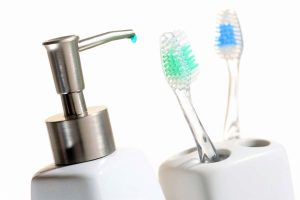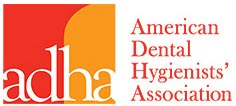Helping Thousands of People Each Year Find Dental Services
- Emergency dental surgery, cavities, general dental care.
- Find immediate help, no insurance required.
- Get relief from chipped, cracked or lost teeth, abscesses or toothaches.
What Is a Toothbrush Sanitizer and Does it Work?
If you’re looking to improve your oral health, any dentist will tell you that brushing your teeth twice a day and flossing daily is the right place to start. Even with that in mind, there are several products that market themselves as the key to an even better, healthier smile.
Toothbrush sanitizers are hygiene tools that have recently increased in popularity—but are they actually a worthwhile investment? In this article, our experts dive deep into the issue to discover that toothbrush sanitizers are safe and effective instruments for oral hygiene.
What Are Toothbrush Sanitizers?
Toothbrush sanitizers are products that claim to kill large amounts of the bacteria that thrive on your toothbrush. While different manufacturers may advertise different rates of effectiveness, it is important to note that no sanitizing product is able to kill 100% of all bacteria.
As confusing as it may seem, there are actually a number of very different products that share the term “toothbrush sanitizer.” In most cases, sanitizers are antibacterial rinses or UV devices. Additionally, there are ultraviolet (UV) sanitizers available that can accommodate multiple toothbrushes for family use.
Toothbrush sanitizers vary in cost, size,and appearance, and are available for purchase from a wide variety of retailers such as drug stores and cosmetics departments.
How Do They Work?
Antibacterial rinses are fairly straightforward—they are liquid products that toothbrushes are soaked in between uses. While some products are specifically designed to sanitize toothbrushes, some people use everyday mouthwash as an alternative.
Although the American Dental Association (ADA) has called this practice unnecessary, they also concede that it will not cause damage to your toothbrush.
UV sanitizers are a little more sophisticated. These sanitizers emulate UV light that is effective at killing bacteria. A UV sanitizer will also mutate the DNA of surviving microorganisms.
These mutations leave bacteria unable to reproduce, leaving no new germs to replace them when they die. This technology is similar to those used in some clinical and lab settings, albeit on a much smaller scale.
Some people choose to take sanitization into their own hands by using boiling water or dishwashers, although these practices may damage your toothbrush more than sanitize it.
What Is the Difference Between Sanitization and Sterilization?
The distinction between sanitizing and sterilizing a toothbrush is quite simple: sterilizing eliminates all living organisms and sanitizing does not.
No sanitizer can be completely effective—if it were, it would be a sterilizer. Although sanitizing means that 99.9% of bacteria will be reduced, the amount of bacteria reduction will differ from product to product.
Ultimately, the goal of sanitizers is not to leave your toothbrush devoid of microorganisms but to manage the buildup of bacteria and extend the life of your toothbrush.
Health Benefits
Dentists recommend brushing your teeth at least two the three times per day for the best possible hygiene. As you use your toothbrush, bacteria from your mouth begins to grow and thrive on your bristles. Additionally, toothbrushes are almost always kept in the bathroom, an environment that does not have a reputation for being particularly clean or sterile.
A damp toothbrush is a cesspool for bacteria and fungi. Add this to the fact that some common practices (such as using a toothbrush cap) are known to increase bacterial growth, it is easy to become concerned with the idea of germs.
Currently, while studies have proven them to work how they’re advertised, there are no official health benefits associated with using a toothbrush sanitizer. The ADA claims that there simply isn’t enough evidence to suggest that bacterial growth on toothbrushes will cause any adverse health effects.
Toothbrush Sanitizers: An Effective Antibacterial?

It may not be as useful as dental floss or toothpaste, but sanitizers are able to offer peace of mind for those who are particularly worried about germs. Additionally, it may be beneficial for those who are prone to mouth infections or those who are frequently traveling or using a toothbrush cap.
While on average, using a toothbrush sanitizer will not make your toothbrush any safer than one that is simply rinsed and dried after brushing, there are also no risks associated with the process either.
Are They Worth It?
Whether a toothbrush sanitizer works and whether it is a worthwhile purchase are two different matters. Many dentists agree that there are toothbrush sanitizers available that are highly effective and greatly reduce the bacteria that grow on your toothbrush. However, whether sanitized bristles are worth the money is ultimately a personal choice.
It is also important to note that the ADA recommends replacing a toothbrush (or a replaceable head for electric toothbrushes) every three to four months. An exception to this rule is when the bristles on your toothbrush are worn out and frayed.
Even newer toothbrushes will lose effectiveness with worn bristles so it is important to replace your brush immediately if this happens. While a toothbrush sanitizer may reduce bacteria, it cannot prevent your brush from becoming worn out. It is also suggested that a brush is replaced after any illness, regardless of whether a sanitizer is used.
One alternative to sanitizing is replacing your toothbrush more often than recommended, which will minimize any bacterial growth. Likewise, simply rinsing your toothbrush in warm water and ensuring the bristles are not holding on to any food or debris is a straightforward (and free) step that can be taken to avoid ever having to deal with an unsanitary brush.
Conclusions
At the end of the day, toothbrush sanitizers are not rip-offs or untested products—they are simply one of many ways to minimize bacterial growth and optimize oral health. Ultimately, the science is settled that toothbrush sanitizers are effective at reducing bacteria, but the value of a bacteria-free toothbrush is a personal matter, not a medical one.
Relate Posts to Read:
Is an Electric Toothbrush for Braces Okay?
Medically Fact-Checked & Written by Our Dental Editorial Team
You can read more about our editorial guidelines by clicking this link and learn more about the Emergency Dentists USA editorial team here.






